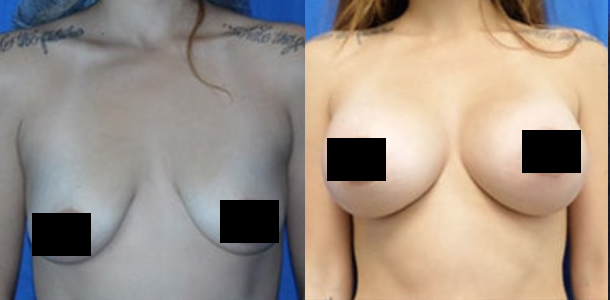Bariatric Surgery
Consultations offered at our three convenient locations in Pomona, Rancho Cucamonga and Apple Valley, CA

Weight loss is a deeply personal journey for each individual. While diet and exercise are the titans of change for weight loss, these two factors assist some more than others. When a patient has tried all the new diet and fitness trends but still can’t seem to achieve a healthy, stable weight, medical intervention might be the next logical step to assist them in their weight loss journey. Offering three different types of bariatric surgeries, Dr. Lee Au is a board-certified Bariatric Surgeon who specializes in helping patients lose weight and keep it off – for good. If you have a history of struggling with controlling your weight, please don’t hesitate to schedule a personal consultation with Dr. Au at one of his Southern California offices. He has convenient locations in Apple Valley, Pomona. You can reach our lovely front desk at 800-555-5551.
Contents
A Healthy Amount of Fat
To understand weight loss, it is important to know that not all fat is bad. Fat is vital to support our body’s metabolism and physiology. In each fat cell, there is harbored energy in the form of triglycerides that, when burned by the body, acts as fuel during times of fasting.[1] A healthy amount of fat cells help maintain balance in the body and operate smoothly. If a person has an inadequate amount of fat cells, they are at risk of serious health conditions like insulin resistance, diabetes, and other serious health conditions.[2] But, with too much fat, a person has a higher risk of comorbidities like cardiovascular disease and type 2 diabetes.[3]
About Weight Loss
Understanding this information has led many people to push themselves to live a healthy life and lose a substantial amount of weight. However, for many, once the initial weight has been lost, they hit a plateau and stop seeing the number on the scale go down. No matter how diligently they continue leading that healthy lifestyle, they can’t seem to regain the momentum they had at the beginning of this journey. After a while, many see the number on the scale start to creep back up. In 29 long-term studies, researchers found that people gained back more than half of the weight they lost after non-surgical weight loss intervention within two years – and more than 80% of the lost weight was regained after 5 years.[4] So, simply put: keeping the weight off might be more difficult for some than initially losing it.
Bariatric Surgeries
With his expert approach to bariatric surgeries, Dr. Au is proud and honored to offer his skills, knowledge, and expertise to his Southern California clientele. With the growing need for bariatric surgery, advanced tools and techniques have made it possible for skilled surgeons like Dr. Au to give patients a fresh chance at living life. Through bariatric surgery and proper dietary coaching, patients can experience weight loss that is more effective than non-surgical treatments.[5]
Gastric Balloon
Performed endoscopically, gastric balloon surgery is an effective solution to treat patients with a BMI between 30 and 40 and one or more co-morbidities. First, Dr. Au will gently insert a deflated gastric balloon into your stomach through your esophagus. This balloon is then filled with saline solution to expand inside your stomach until it is around the size of a grapefruit. For some patients, Dr. Au will elect to place a second gastric balloon inside your stomach. When you consume food, this balloon will trick your brain into thinking you are fuller and will send messages that satiety has been reached, to stop eating. As an outpatient procedure, this is an option for patients who don’t wish to make permanent surgical changes and want to avoid longer recovery times.
Gastric Sleeve
Also known as sleeve gastrectomy, this procedure involves removing 85% of the stomach laparoscopically. The remaining stomach tissue is molded to form a smaller pouch to process and digest food. Because the reduced stomach is smaller, it sends off signals of being full sooner than before. Now, gastric sleeve patients are less able to overeat and have to be more aware of choosing healthier options to consume so that their body receives the proper nutrients with a smaller stomach. To qualify for a sleeve gastrectomy, patients typically fall between 30 and 40 BMI scores and experience multiple comorbidities like diabetes, sleep apnea, and high blood pressure.
Lap Band
Also known as Laparoscopic Adjustable Gastric Banding, a Lap-Band procedure involves wrapping an adjustable silicone band around the upper part of the stomach, just below the esophagus. Dr. Au will fill the band with saline solution to adjust the diameter of the band, restricting the amount of food that can pass through the artificial opening. Because food will now have to pass through the restricted opening in the stomach, patients eat more slowly and smaller amounts of food satisfy their hunger, causing them to lose weight in the weeks and months following their Lap-Band procedure.
If you would like to learn how bariatric surgery can help you live a healthier, more active life, please schedule a personal consultation with Dr. Au at one of his Southern California offices. Here, he will be able to construct a comprehensive plan to help you achieve and maintain your desired weight loss goals.
Personal Consultation

Dr. Lee Au has over 33 years of experience with hundreds of major bariatric procedures. He understands that a weight loss journey is not a straight line but rather a complex path filled with highs and lows. With his expert knowledge, he can help you avoid any pitfalls on your way to a happier, healthier you.
Because weight management has a psychological component, verifying that a candidate is eligible for bariatric surgery is done so in steps. First, we will calculate your BMI and any pre-existing health conditions. If you are between 30-40 BMI and have more than one comorbidity, then you may easily qualify. If you are over 40 BMI, you may qualify regardless of how many comorbidities you have. Then, we will discuss your medical and surgical history, noting if you have had any weight loss procedures in your past. We will ask about your diet, making notes of the total calories you typically eat in a day. Bariatric surgery is not a magic pill to be skinny forever. Rather, it’s a tool to help your body fight off urges to overeat. So, we must make sure you are fully educated on what is healthy and acceptable food and how many calories are a reasonable amount to eat daily. Dr. Au will be the one to approve you for bariatric surgery and will discuss which method is best for your unique goals and needs.
Preparation
To prepare for bariatric surgery, Dr. Au will discuss exactly what your unique surgical requirements are and how to best approach your procedure. General preoperative requirements include:
- Avoid smoking as nicotine constricts blood vessels and will hamper your body’s natural healing response.
- Discontinue taking any blood-thinning medications or supplements as these will increase bleeding during your procedure.
- Designate a caregiver to drive you home and look after your surgery.
- Fill all prescriptions we give you beforehand. After your surgery, you want to have all of your necessary medications in hand so you can focus solely on proper recovery.
Results
Once they have fully healed from bariatric surgery, many of our patients report a higher quality of life. They say daily tasks are easier, clothes fit better, and many of their comorbidities have greatly improved or disappeared altogether. Unlike other weight loss interventions, bariatric surgery has given them the tools and knowledge necessary to drop down to their goal weight and remain there for as long as they wish. After bariatric surgery, it is important to remain vigilant in choosing nutritious foods and lead an active lifestyle as these will help solidify your results.
Cost
The cost of your bariatric surgery will depend on which approach Dr. Au and you decide is best for your lifestyle and desired results. During your consultation, we will determine the cost of your procedure. If you would like to learn more about pricing, please don’t hesitate to contact us on our website or call our front desk directly at (800) 555-5551.
References
- Cohen, P., & Spiegelman, B. M. (2016). Cell biology of fat storage. Molecular biology of the cell, 27(16), 2523–2527. https://doi.org/10.1091/mbc.E15-10-0749
- Garg A. (2011). Clinical review#: Lipodystrophies: genetic and acquired body fat disorders. The Journal of clinical endocrinology and metabolism, 96(11), 3313–3325. https://doi.org/10.1210/jc.2011-1159
- Ohlson, L. O., Larsson, B., Svärdsudd, K., Welin, L., Eriksson, H., Wilhelmsen, L., Björntorp, P., & Tibblin, G. (1985). The influence of body fat distribution on the incidence of diabetes mellitus. 13.5 years of follow-up of the participants in the study of men born in 1913. Diabetes, 34(10), 1055–1058. https://doi.org/10.2337/diab.34.10.1055
- Hall, K. D., & Kahan, S. (2018). Maintenance of Lost Weight and Long-Term Management of Obesity. The Medical clinics of North America, 102(1), 183–197. https://doi.org/10.1016/j.mcna.2017.08.012
- Neff, K. J., Olbers, T., & le Roux, C. W. (2013). Bariatric surgery: the challenges with candidate selection, individualizing treatment and clinical outcomes. BMC medicine, 11, 8. https://doi.org/10.1186/1741-7015-11-8



